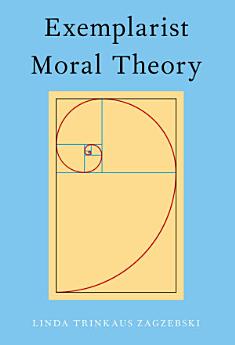Exemplarist Moral Theory
Feb 2017 · Oxford University Press
Ebook
336
Pages
family_home
Eligible
info
reportRatings and reviews aren’t verified Learn More
shoppingmode29% price drop on Aug 5
About this ebook
In this book Linda Zagzebski presents an original moral theory based on direct reference to exemplars of goodness, modeled on the Putnam-Kripke theory which revolutionized semantics in the seventies. In Exemplarist Moral Theory, exemplars are identified through the emotion of admiration, which Zagzebski argues is both a motivating emotion and an emotion whose cognitive content permits the mapping of the moral domain around the features of exemplars. Using examples of heroes, saints, and sages, Zagzebski shows how narratives of exemplars and empirical work on the most admirable persons can be incorporated into the theory for both the theoretical purpose of generating a comprehensive theory, and the practical purpose of moral education and self-improvement. All basic moral terms, including "good person," "virtue," "good life," "right act," and "wrong act" are defined by the motives, ends, acts, or judgments of exemplars, or persons like that. The theory also generates an account of moral learning through emulation of exemplars, and Zagzebski defends a principle of the division of moral linguistic labor, which gives certain groups of people in a linguistic community special functions in identifying the extension or moral terms, spreading the stereotype associated with the term through the community, or providing the reasoning supporting judgments using those terms. The theory is therefore semantically externalist in that the meaning of moral terms is determined by features of the world outside the mind of the user, including features of exemplars and features of the social linguistic network linking users of the terms to exemplars. The book ends with suggestions about versions of the theory that are forms of moral realism, including a version that supports the existence of necessary a posteriori truths in ethics.
About the author
Linda Trinkaus Zagzebski is George Lynn Cross Research Professor, and Kingfisher College Chair of the Philosophy of Religion and Ethics at the University of Oklahoma. She is the author of Epistemic Authority (2012).
Rate this ebook
Tell us what you think.
Reading information
Smartphones and tablets
Install the Google Play Books app for Android and iPad/iPhone. It syncs automatically with your account and allows you to read online or offline wherever you are.
Laptops and computers
You can listen to audiobooks purchased on Google Play using your computer's web browser.
eReaders and other devices
To read on e-ink devices like Kobo eReaders, you'll need to download a file and transfer it to your device. Follow the detailed Help Center instructions to transfer the files to supported eReaders.







